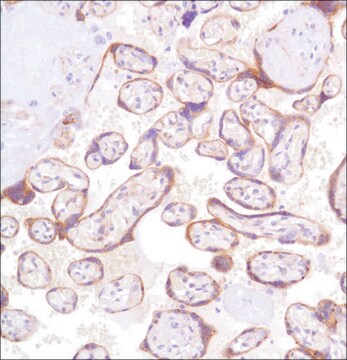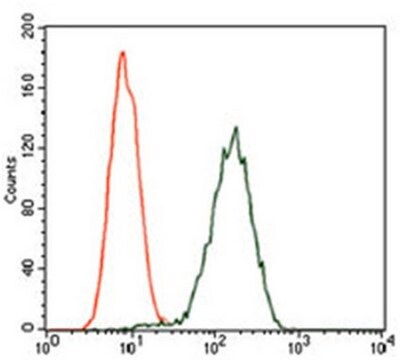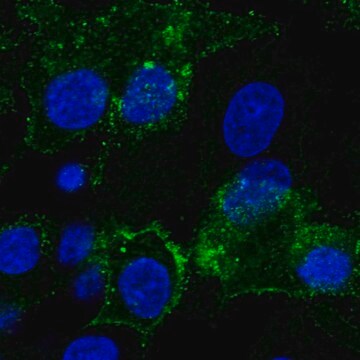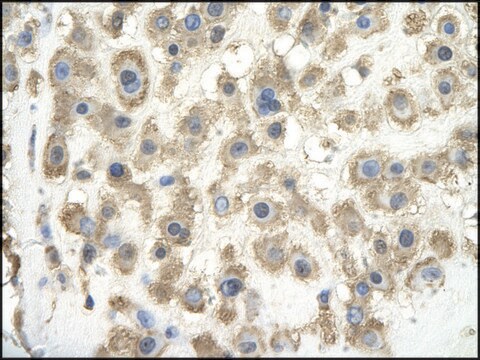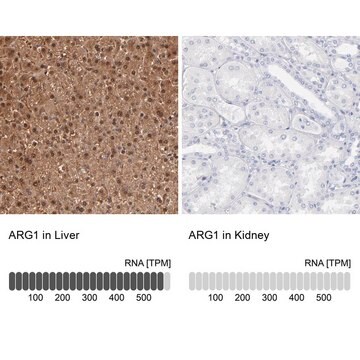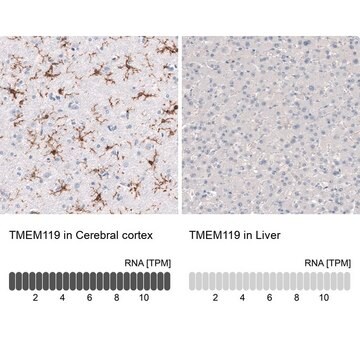261M-9
Glypican-3 (1G12) Mouse Monoclonal Antibody
About This Item
Produtos recomendados
fonte biológica
mouse
Nível de qualidade
100
500
conjugado
unconjugated
forma do anticorpo
culture supernatant
tipo de produto de anticorpo
primary antibodies
clone
1G12, monoclonal
descrição
For In Vitro Diagnostic Use in Select Regions (See Chart)
forma
buffered aqueous solution
reatividade de espécies
human
embalagem
vial of 0.1 mL concentrate (261M-94)
vial of 0.5 mL concentrate (261M-95)
bottle of 1.0 mL predilute (261M-97)
vial of 1.0 mL concentrate (261M-96)
bottle of 7.0 mL predilute (261M-98)
fabricante/nome comercial
Cell Marque™
técnica(s)
immunohistochemistry (formalin-fixed, paraffin-embedded sections): 1:100-1:500
Isotipo
IgG1
controle
hepatocellular carcinoma (HCC)
Condições de expedição
wet ice
temperatura de armazenamento
2-8°C
visualização
cytoplasmic
Informações sobre genes
human ... GPC3(2719)
Descrição geral
Qualidade
 IVD |  IVD |  IVD |  RUO |
Ligação
forma física
Nota de preparo
Outras notas
Informações legais
Não está encontrando o produto certo?
Experimente o nosso Ferramenta de seleção de produtos.
Certificados de análise (COA)
Busque Certificados de análise (COA) digitando o Número do Lote do produto. Os números de lote e remessa podem ser encontrados no rótulo de um produto após a palavra “Lot” ou “Batch”.
Já possui este produto?
Encontre a documentação dos produtos que você adquiriu recentemente na biblioteca de documentos.
Nossa equipe de cientistas tem experiência em todas as áreas de pesquisa, incluindo Life Sciences, ciência de materiais, síntese química, cromatografia, química analítica e muitas outras.
Entre em contato com a assistência técnica